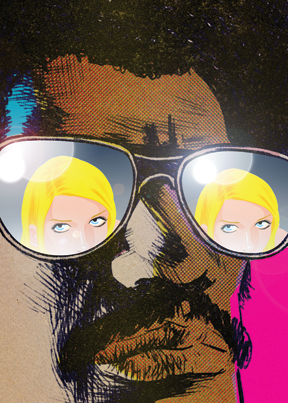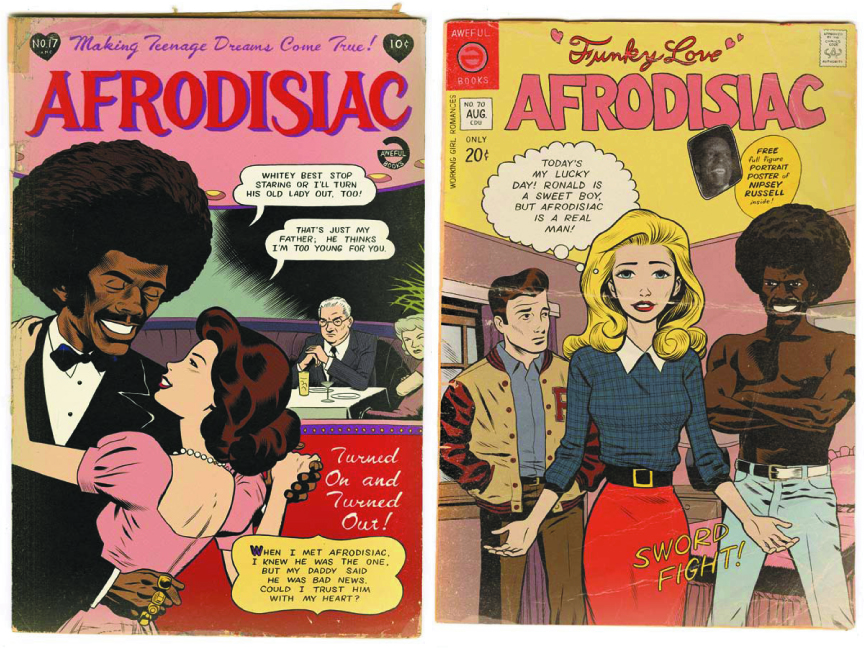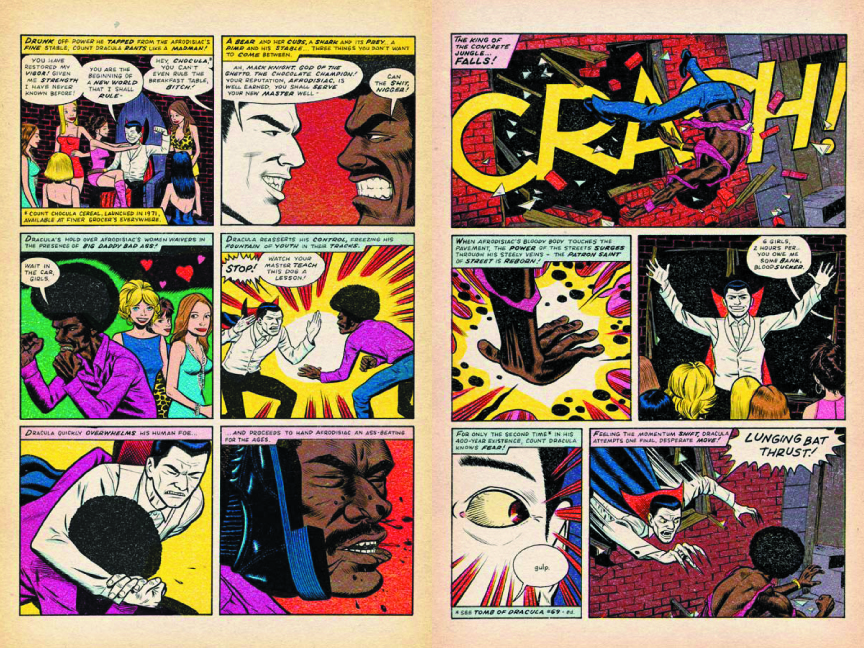No Jive Suckas Allowed
/
Filmmakers have found a wealth of material to make great sport of in the Blaxploitation genre; the Wayans Brothers spoofed Superfly, Shaft, Black Belt Jones, and the like in 1988’s I’m Gonna Git You Sucka, and Spawn and Dark Knight star Michael Jai White had a go at Soul Cinema in last year’s must-see indie Black Dynamite. Leslie Nielsen even got in on the act in a Seventies flashback segment of the third Naked Gun film, sporting an afro the size of a medicine ball. However, despite the prominence of afro-wearing superheroes in the 1970s (Luke Cage, Black Lightning, Black Goliath), most comics creators are eager to jettison the stereotypical baggage of that era, simultaneously updating and mainstreaming the characters (hence, Cage drops the tiara and ‘fro and joins the Avengers, etc.). Thankfully, cartoonist Jim Rugg and co-writer Brian Maruca have decided to embrace the tropes of the genre in their new AdHouse Books graphic novel Afrodisiac, and the result is a delicious throwback with a striking visual style and plenty of laughs.
The book’s titular character (spun off from his appearances in Street Angel) is a bell-bottomed, jive-talking, street-fighting superpimp endowed with trouble-alerting “Street Smarts”, as well as a way with the ladies. In a series of short strips (bookended by scarily accurate retro cover spoofs and pinups), Afrodisiac does battle with Dracula, Hercules, Richard Nixon, and a crazed supercomputer, even finding time to indulge in a sexy encounter with Death herself. Rugg and Maruca mock Marvel’s origin recaps in a series of first-page captions that offer an array of increasingly ridiculous and contradictory alternate origin stories for Afrodisiac, and at times, they even provide asterisked translations of the character’s street dialogue (much like Marvel did in a 1983 Falcon miniseries).

Rugg’s art recalls other indie favourites like David Lapham and Farel Dalrymple, but with its own easily recognizable idiosyncracies (Rugg has a gift for three-dimensional sound effects that fly like rubble during fight scenes, for instance). The lo-fi colour scheme evokes 1970s comics in a way that is not unlike Dan Clowes’ work on Eightball, and the spoof covers done in the style of Harvey and Gold Key comics for kids, romance books, and even Saturday morning cartoon intros, are dead on. Afrodisiac may not be for everybody—much of the dialogue and situations are not exactly politically correct—but if that doesn’t bother you, and you have a taste for retro silliness, throw on some Curtis Mayfield and enjoy this outta-sight gem.





